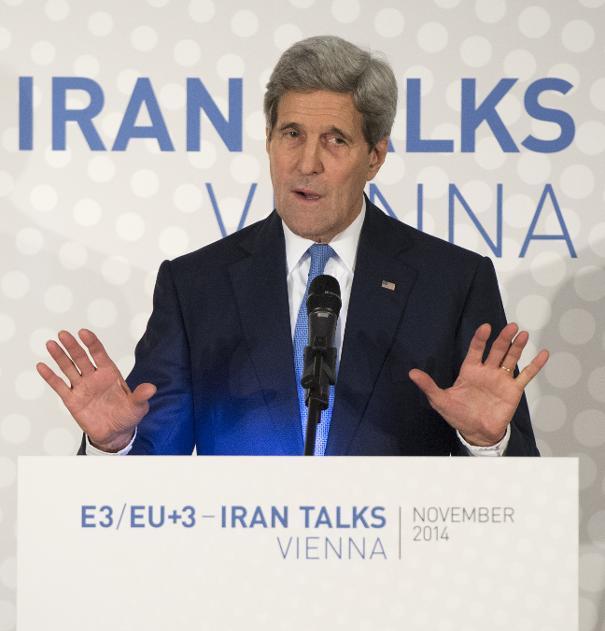Iran nuclear talks stumble, extended until July
A yearlong effort to seal a nuclear deal with Iran fizzled Monday, leaving the U.S. and its allies little choice but to declare a seven-month extension. It’s hoped that a new deadline will be enough to achieve what a decade of negotiations have failed to do — limit Tehran’s ability to make a nuclear weapon. U.S. Secretary of State John Kerry and other Western foreign ministers who converged on Vienna in a last-ditch diplomatic push talked up the add-on time as the best way forward. Negotiators will now strive to nail down by March 1 what Iran and the six world powers it is negotiating with must do, and by when. A final agreement is meant to follow four months later.
All the people involved here feel that there really is a chance to find a way to reach each other and we are going to take that chance.
German Foreign Minister Frank-Walter Steinmeier
Iran already appears to be the beneficiary of Monday’s decision. Its nuclear program is left frozen but intact, without any of the cuts sought by the U.S. And while the negotiations continue, so will monthly dole-outs of $700 million in frozen funds that began under the temporary nuclear deal agreed on late last year that led to the present talks. Even the new deadline was not immediately clear, with negotiators saying it was July 1, and British Foreign Secretary Philip Hammond fixing it at June 30.
The one thing the Iranians didn’t have was time, and now they have 219 days.
Republican Senator Mark Kirk, whose work on oil sanctions helped drive Iran to the negotiating table

World nuclear iran